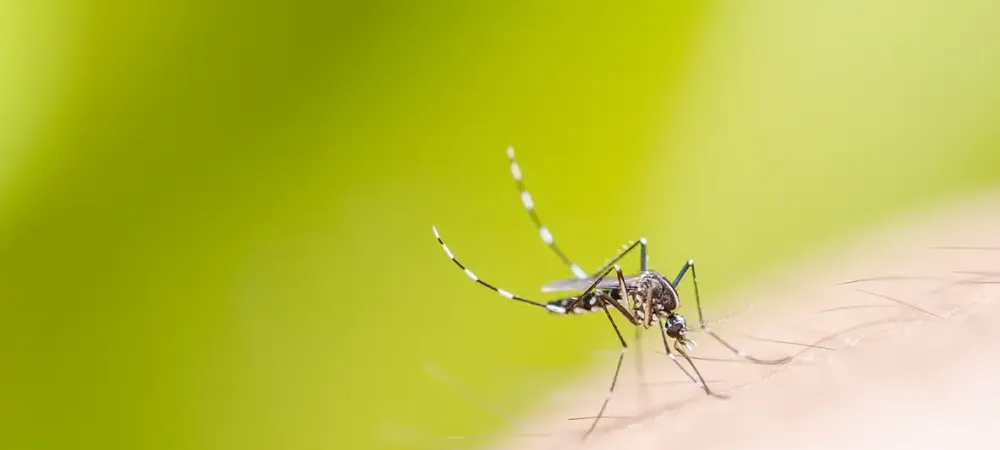Managing Mosquito Populations Along the Gulf Coast

The Gulf Coast’s warm, humid climate and frequent rainfall create the perfect environment for mosquitoes to thrive. With an abundance of standing water in marshes, swamps, and residential areas, mosquito populations can quickly grow out of control. Effective mosquito management is essential to prevent the spread of mosquito-borne diseases and ensure public health and comfort. Without proper intervention, mosquito infestations can make outdoor activities unbearable and increase the risk of illness for both residents and visitors.
Why Mosquitoes Thrive Along the Gulf Coast
The Gulf Coast's unique climate and geography contribute to its high mosquito populations. The combination of high humidity, frequent rainfall, and consistently warm temperatures provides an ideal breeding ground for mosquitoes. Unlike other regions where colder seasons help reduce mosquito activity, the Gulf Coast experiences mild winters, allowing some mosquito species to remain active year-round.
Mosquitoes rely on standing water to reproduce, making marshes, swamps, and poorly drained areas prime breeding grounds. Even small amounts of water, such as puddles, clogged gutters, and water collected in flowerpots or birdbaths, can support mosquito larvae. In urban and suburban settings, storm drains, neglected pools, and trash items like old tires can provide additional breeding sites, making residential mosquito control just as important as large-scale efforts in wetland areas.
Types of Mosquitoes
The region is home to several mosquito species, but two of the most common and problematic ones are Aedes aegypti and Culex mosquitoes. Aedes aegypti, also known as the yellow fever mosquito, is particularly aggressive and thrives in urban and suburban environments, where it lays eggs in small containers of water. Culex mosquitoes, on the other hand, are known for transmitting West Nile virus and tend to breed in larger, more natural bodies of standing water, such as storm drains, marshes, and ponds.
Health Risks Posed by Mosquitoes
Mosquitoes are more than just a nuisance—they pose serious health risks by transmitting diseases. One of the most well-known mosquito-borne illnesses is West Nile virus, which is primarily spread by Culex mosquitoes. While many people infected with West Nile virus experience mild or no symptoms, severe cases can lead to neurological complications, including encephalitis and meningitis, which can be life-threatening.
Another significant concern is the Zika virus, primarily transmitted by Aedes aegypti mosquitoes. Zika virus gained global attention due to its link to birth defects, particularly microcephaly in newborns. Pregnant women are especially advised to take precautions against mosquito bites in areas where Zika has been reported.
Dengue fever is another illness spread by Aedes mosquitoes. This disease, common in tropical and subtropical regions, causes severe flu-like symptoms, including high fever, joint pain, and skin rashes. In extreme cases, dengue can develop into dengue hemorrhagic fever, which can be fatal if not treated promptly. The presence of these diseases in the Gulf Coast region makes mosquito control a public health priority, requiring proactive measures to reduce both mosquito populations and human exposure.
Effective Mosquito Control Strategies
Reducing mosquito populations requires a combination of personal, residential, and professional measures. One of the most effective ways to control mosquitoes is by eliminating breeding grounds. Homeowners should regularly inspect their yards and remove any stagnant water sources. Dumping water from birdbaths, flowerpots, and outdoor furniture is a simple yet crucial step. Cleaning gutters to ensure proper drainage and maintaining swimming pools to prevent stagnation also help minimize mosquito breeding sites.
For water sources that cannot be removed, such as decorative ponds or rainwater collection systems, the use of larvicides is recommended. Larvicides, approved by the Environmental Protection Agency (EPA), help prevent mosquito larvae from developing into adults. These products are particularly useful for public areas, such as parks and drainage ditches, where standing water cannot be easily eliminated.
Personal protection is another essential aspect of mosquito control. Using EPA-approved insect repellents, such as those containing DEET, picaridin, or oil of lemon eucalyptus, provides effective defense against mosquito bites. When spending time outdoors, wearing long-sleeved clothing and light-colored attire can help reduce the likelihood of being bitten. At night, mosquito nets offer additional protection, especially for individuals living in high-risk areas.
Professional mosquito control services play a critical role in managing large-scale infestations. Licensed pest control companies use targeted spraying and barrier treatments to reduce mosquito populations. These treatments are especially beneficial for homeowners who live near wetlands, as well as businesses that want to ensure a comfortable outdoor environment for their customers. Hiring a licensed pest control service ensures that treatments are applied safely and effectively, reducing both mosquito numbers and disease risks.
Community Efforts in Mosquito Control
Mosquito control requires collective efforts at both individual and community levels. Many Gulf Coast cities implement mosquito management programs that include regular spraying of public areas, larvicide applications in water bodies, and community education initiatives. Local health departments and environmental agencies often provide resources to help residents understand how they can contribute to mosquito control efforts.
Public awareness campaigns emphasize the importance of eliminating breeding grounds and using personal protection methods. Some communities organize neighborhood clean-up events to remove trash and standing water that may serve as mosquito habitats. Encouraging neighbors to take similar preventive measures can have a significant impact, as mosquitoes do not respect property lines and can quickly spread across neighborhoods if left unchecked.
Additionally, some areas use biological control methods, such as introducing mosquito-eating fish to ponds and lakes. These fish, including species like Gambusia (mosquitofish), help keep mosquito populations in check naturally. Researchers are also exploring innovative mosquito control technologies, such as genetically modified mosquitoes designed to reduce reproduction rates.
Get Rid of Mosquitoes With Help From Mayley's Pest Control
Managing mosquito populations along the Gulf Coast is vital for public health and comfort. By eliminating breeding sites, using protective measures, and seeking professional pest control services, homeowners can take proactive steps before peak mosquito season. Mosquito control is not just an individual responsibility but a community-wide effort. Working together to reduce mosquito populations makes outdoor living more enjoyable and significantly lowers the risk of disease transmission. As mosquito season approaches, taking action early can help keep Gulf Coast communities safe and comfortable throughout the year. For expert mosquito control solutions, contact Mayley's Pest Control to protect your home and family from these persistent pests.
